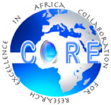Improving Research Capacity in Cameroon:
Learning From Our Challenges & Experience
This project aims to identify barriers and facilitators to good quality research, a good research culture* and a supportive research environment** in Cameroon.
Through discussions with Cameroonian researchers both in and out of Cameroon, we aim to identify factors that influence the outcomes of their research projects, the quality of their research and their experiences of doing research in Cameroon. For example, factors that may cause significant project delays, or cause researchers to abandon their projects, change direction, use shortcuts, adopt negative research practices, etc.
Discussions will also address factors that influence the way researchers work with each other, to inform the development of a roadmap for research collaboration, and how to maximise the limited resources available to researchers in Cameroon.
*Research culture – norms, attitudes and behaviours that influence how people do research
**Research environment – policies, practices and procedures that support research
By taking part in this project, you will be helping to raise awareness of research barriers in Cameroon, and identifying potential solutions for them.
Aims
- To sensitise the research community on factors impacting research quality and research output based on the experiences of Cameroonian researchers.
- To identify challenges for research collaboration and how to enhance collaboration among Cameroonian researchers
- To identify factors that can help strengthen the research culture and research environment in Cameroon
TARGET AUDIENCE
- Cameroonians, resident in Cameroon or abroad, with experience of conducting research in Cameroon; regardless of the researcher’s academic background.
- Conducted research in Cameroon for at least three years, OR been a principal or co-investigator in at least two research projects conducted in Cameroon, regardless of the outcome of these projects (i.e., whether these projects led to a publication or not).
- Published at least two research papers in their field.
- Speakers will be invited to an interview where they will be asked to share their experiences or opinions on their chosen topic (see list of topics below). Multiple speakers who choose the same topic may be invited to the same interview session.
INTERVIEW DETAILS
- Discussions will either take place virtually (on Zoom) or in-person at a convenient location in Yaounde. Each interview will last a maximum of 25 minutes.
- Interviews will be recorded – speakers will choose if they will want their interviews recorded as video or audio.
LIST OF TOPICS
- Research contributions and authorship
- How authors define research contribution
- Experiences where researchers are made co-author without satisfying criteria for authorship
- Experiences where authors are not ordered according to their contributions to the work (e.g. ordering authors by rank or connection)
- How researchers address such issues
- How such issues affect researchers
- Experiences involving conflicts of interest and how these are addressed
2. Research skills
- Experiences where research projects become stagnant, get abandoned, or remain unpublished due to lack of expertise to conduct certain aspects of the project (e.g. a project gets stuck at data analysis due to lack of statistical expertise, or a project that got abandoned due to poor poor design or data collection)
- How researchers address such issues
- How such issues affect researchers and their work
- What can be done to avoid such situations
3. Research ethics
- Difficulties in conducting projects due to ethics complications (e.g. high cost of ethics application, delays in getting ethics approval, complicated procedures, etc)
4. Research misconducts/malpractices
- Discussions on data fabrication or falsification – what could cause researchers to do this?
- Examples of common research malpractices
- How this affects research quality
5. Research collaboration
- Views on why researchers may not want to work together
- Challenges researchers face when collaborating with other researchers
- What can be done to encourage researchers to collaborate more (both in and outside of Cameroon)
- What can be done to enhance/facilitate the collaboration process (both in and outside of Cameroon)
- How researchers work with each other – e.g. approach of experienced researchers towards less experienced researchers
- How experienced researchers mentor younger or less experienced researchers
6. Research governance
- Any ideas of regulatory bodies that are helpful in providing guidance and support on good research practices in Cameroon, or that have been helpful in governing the conduct of research in Cameroon
- Lessons that can be learnt from out-of-country experiences (e.g. evidence of factors that help strengthen the research culture/environment in other countries, which could also be helpful in Cameroon)
- Examples of regulatory bodies that help in governing the conduct of research in other countries, and how such bodies could also be helpful in Cameroon
- Steps that can be taken to strengthen the conduct of research in Cameroon
7. Research funding
- How research projects in Cameron have been affected by funding challenges
- How Cameroonian researchers address funding challenges
- How researchers can overcome funding challenges going forward
8. Research foundation
- How much academic research (research taught/done at the University) in Cameroon contributes towards research expertise beyond academia
- What can be done to improve academic research in Cameroon
FINDINGS
- Key findings from interviews will be documented and written up as a research paper, published in a peer-review journal, and presented in conferences.
- A copy of the published article will be submitted to the Ministry of Scientific Research and Innovation in Cameroon.
- Some recordings will be shared either as videos or audio podcasts on CORE Africa media platforms (speakers will be asked to give consent).
HOW TO TAKE PART
Please complete the form below to let us know what topic(s) you would like to discuss
